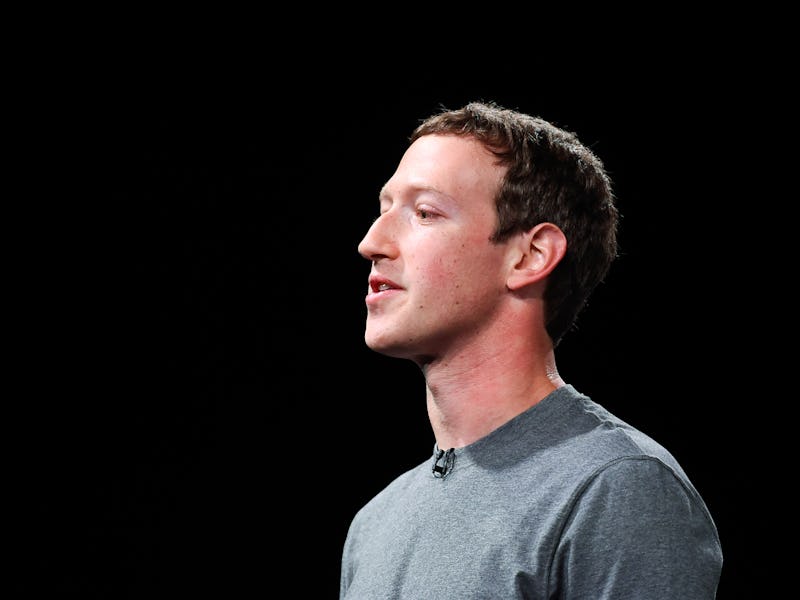The Juiciest Bits From Facebook's 28-Page Guide on Trending Topics
Liberal and conservative news media are included.

Following criticisms that Facebook’s trending topics purposely avoid conservative news media, users have been clamoring to know more about what exactly goes into the small trending box on the right side of Facebook’s desktop site.
Now there are answers to go along with leaked documents published today in The Guardian about how Facebook uses editors, not algorithms, to select the news that goes in the Trending Topics section.
“Facebook does not allow or advise our reviewers to discriminate against sources of any political origin, period,” writes Justin Osofsky, Facebook’s VP Global Operations, in a blog post that accompanies the guidelines.
The question of how Trending Topics are chosen came with this bombshell-story in Gizmodo with a headline that’s the opposite of what Osofsky posted: “Former Facebook Workers: We Routinely Suppressed Conservative News.”
Meanwhile, the U.S. Senate Committee on Commerce, Science, and Transportation has sent a letter to Facebook founder Mark Zuckerberg asking him to explain the operation in detail to the Senate. It’s unclear if the Senate will still want Zuckerberg to appear before Congress now that the documents are out in the open.
The Trending Review Guidelines review a system in which a combination of algorithms and humans making editorial decisions subtly manipulate the trending topics. The change was made due to criticisms regarding the lack of coverage surrounding protesters’ clashes with police in Ferguson in 2014.
Here are the eight biggest insights.
8. The 10 News Organization
Facebook doesn’t necessarily draw exclusively from these 10 websites, but it does require them as a second, third, and fourth source to confirm the news is accurate. The list of 10 includes a mixture of liberal, neutral, and conservative media: BBC News, CNN, Fox News, The Guardian, NBC News, The New York Times, USA Today, The Wall Street Journal, Washington Post, Yahoo News, or Yahoo.
7. Real World Events
Facebook uses the purposely broad descriptor that trending topics should be real-world events. Meaning they are things that are actually happening in time and space either in the recent past, present, or near future. So don’t expect existential topics to pop up on your feed or random internet memes — that’s more of a Twitter specialty.
6. Topic Categories
The Facebook editorial team organizes trending items into 17 broad topic categories and even more subcategories for specific sports and entertainment media. The 17 categories include things you’d expect like science, technology, politics, and business, but also some strange ones such as “Risque,” “Gossip,” and “Sad/ Disturbing.”
5. Rewriting Topics
The titles and descriptions for the trending topic aren’t organically generated. A real person is crafting those titles like the headlines of a newspaper. Titles are rewritten to better reflect the informal nature of Facebook, make confusing topics more concise, and to turn location based topics into national trending stories. For example: Facebook users don’t care about the very formal “Coachella Valley Music & Arts Festival” when the simple title of “Coachella” will suffice.
4. The Nuclear Option
Facebook has a protocol in place for what it calls the “truly ‘Holy S**t’ stories.” The guidelines project events like these to happen maybe three times a year and specifically state they should be on the level of 9/11, a major country’s president getting shot, or Russia invading Ukraine.
3. Hashtags
The editorial team pays close attention to hashtags and attempts to make them as easy for users to comprehend at a quick glance as possible. The guidelines use the example of turning long hashtags into up style #teacherappreciationweek becomes #TeacherAppreciationWeek.
2. Sports
There’s a whole three pages or more dedicated to rewriting sports topics such that no one team is favored over the other. The rules change based on the real time events of the sport and the international appeal. For example, once a team wins the sporting event, the victor is more prominently played up in the title.
1. Blacklist Topics
Often, there are several related events trending simultaneously and Facebook wants to avoid duplicates. So, the editorial team will “blacklist” an event for a three to eight-hour window and revisit the topic later. Sometimes secondary topics emerge out of this, such as when the NBA Finals are trending and a specific event involving LeBron James emerges as a secondary.
Here’s the full 28-page rundown: